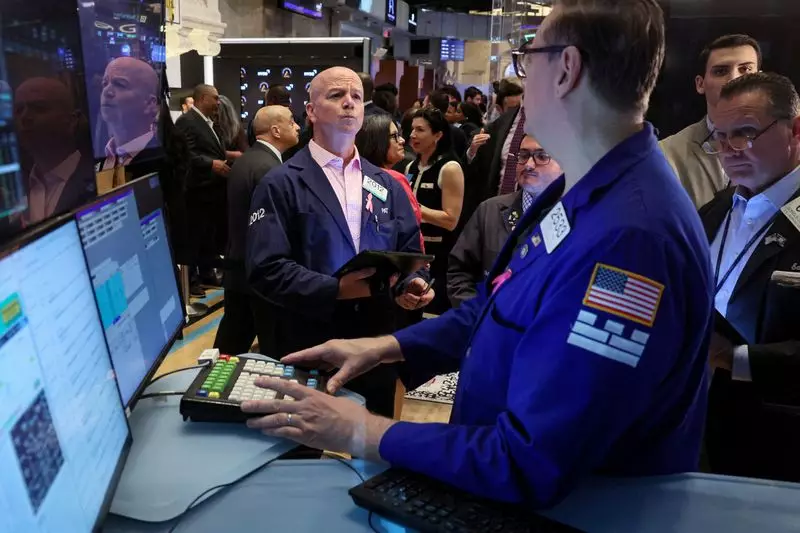The U.S. retail sector is currently facing challenges due to elevated interest rates, which have put pressure on many companies within the industry. While the S&P 500 Consumer Discretionary Distribution & Retail index has managed to stay relatively in-line with the overall market performance, the sector’s gains have been largely driven by a select few stocks, most notably Amazon.com. On the other hand, companies catering to lower-income consumers, such as Dollar Tree and Dollar General, have struggled to maintain their stock performance, with significant declines year-to-date. The impact of higher interest rates on consumers in the lower to mid-income segment has been particularly noteworthy, with rising gas prices and grocery costs squeezing their discretionary spending power.
The Federal Reserve’s stance on monetary policy, reiterating the need for cooling inflation before considering rate cuts, has further added to the pressure on the retail sector. The Fed’s cautious approach has led to speculation among investors regarding the timing of potential rate cuts. While futures markets are pricing in expectations of a rate cut in September, the Fed’s guidance suggests a more conservative timeline, possibly waiting until December. This divergence in expectations has fueled uncertainty among investors as they navigate the retail sector.
In response to the challenges faced by the retail sector, investors are focusing on companies with resilient business models that can withstand the impact of higher interest rates. Retailers that emphasize value and offer discounts, such as Walmart, Costco, and TJX Companies, have seen their stock prices outperforming the broader market. Strategies employed by fund managers, such as buying shares of companies with strong management and inventory controls, have proven successful in weathering the inflationary environment.
Despite the prevailing challenges, opportunities exist within the retail sector, particularly in areas such as online shopping. Companies like Carvana and DoorDash have seen significant stock price appreciation, indicating investor confidence in their growth potential. As consumers continue to seek convenience and value in their shopping experiences, companies that can meet these needs are likely to thrive, even in the face of elevated interest rates.
The U.S. retail sector is navigating through a challenging environment characterized by elevated interest rates and uncertainty regarding future monetary policy decisions. While certain companies have managed to outperform the market, others have struggled to maintain their stock performance. Investors are adopting strategies to mitigate risks and capitalize on opportunities within the sector, focusing on companies with strong fundamentals and growth potential. As the retail landscape continues to evolve, adaptability and strategic investments will be key to navigating the shifting dynamics of the market.

